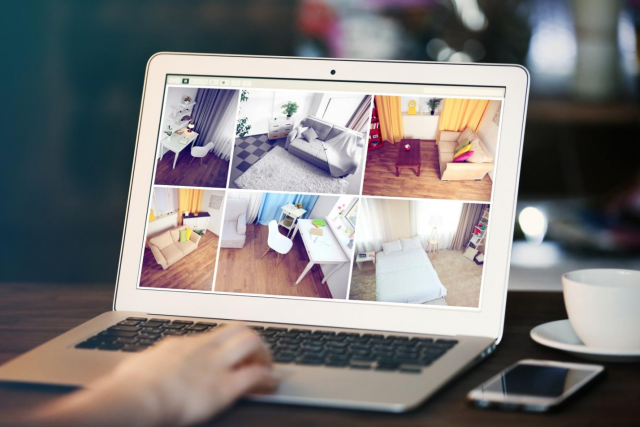Wireless home security systems are the priority of homeowners in 2022. They have different smart features and are more robust than their wired home security counterparts. Wireless home security systems allow you to get rid of wires and easy installation regardless of whether you go the DIY or pro-installation route diy wireless home security systems. They also enable the flexibility of moving cameras around to where you need them most and adding them to boost your home’s security as much as you want.
When choosing a home security system, you must consider different factors such as the surveying plan options and cost, including equipment and each company’s particular features. We will all examine some of the best home security systems available in 2022. They belong to different categories and offer features depending on your requirements.
If you’re looking to purchase the best wireless home security system, here’s what to look for, the advantages of going wireless, and how these systems can secure your house and give you peace of mind no issue where you go.
Best Wireless Home Security Systems
- ADT – Best Professional Monitoring
- Cove – Most Affordable
- Vivint – Best Wireless Security with Home Automation
- Frontpoint – Best DIY Wireless Security
- SimpliSafe – Best Wireless System
- Goabode – Best No Contract Wireless Security
How to Choose the Best Wireless Home Security System for You
Contracts and Costs
Every home security system has a price tag, but it’s critical to understand what you’re paying for and where and when you want to spend it.
Your overall monthly costs, and your initial cost, brinkshome wireless home security systems the following factors will influence:
- Self-monitoring vs. professional monitoring
- Do-it-yourself vs. professional installation
- Buying equipment outright rather than on a payment plan if one is available
- Return policy and warranty coverage
- If applicable, the length and terms of your contact
If your home security system depends on Wi-Fi rather than a cellular connection, you’ll need a fast and reliable Wi-Fi subscription. The more expensive the plan is, the quicker your internet is, so think about whether your current home infrastructure is adequate for the type of wireless home security you need to install — or whether you’ll want to update to get the most out of your monitoring plan wireless home security systems with cameras.
User-Friendliness: Installation, Monitoring, and Usability
You’ll need your home security system to start functioning for you right away, including the speed and comfort it can be installed and used.
Not all good home security companies provide DIY installation, though if you want to get started right away, seek a firm that does instead of waiting for someone to come out and set up your system. Individual home security providers require professional installation, though not all charge for this service cheap wireless home security systems.
The equipment’s quality and user knowledge are also important: A wireless touchpad or touch screen is used by some security systems, whereas others use a keypad. Some businesses supply an app that allows you to control your security system or watch your security cameras from your smartphone.
Smart Home Integration and Security Features
Every aspect of your best home security system may be tailored to your unique requirements; it’s well worth the time and effort to find a firm that provides the equipment and special safety features you require and extra features such as smart home integration wireless home security systems camera.
The indoor and outdoor monitoring camera types available to combine with each system, doorbell cameras, wireless monitoring systems, and other features vary for each home security business. Other features like glass break detection, carbon monoxide detection, and medical emergency alerts are worth investigating if you need your home security system to provide additional benefits that keep your home—and everyone inside it—safe in any situation.
Each firm also offers a variety of smart home integration options. Home automation features include turning lights on and off, adjusting your temperature, using voice commands, and controlling appliances. Some systems let you set a timer for home automation services or control your equipment with your smartphone. If those home security features are essential to you, mace wireless home security systems make sure the home security system you’re buying can work with your existing smart home devices or if you’ll need to buy a separate smart home system to get them.
Wireless Home Security System Advantages
Safety and security
The lack of cables is the clear advantage of a wireless home security system. When there are no cables to cut or workaround, your property becomes a more challenging target for an intruder. Furthermore, even if the wireless power source is disrupted, most wireless security cameras have a backup battery to keep your monitoring system operational in a power outage.
Scalability and flexibility
When you don’t have to rely on installation sites that allow wired devices, your possibilities for where to put your home security system equipment are virtually endless. Your configuration will be more adaptable and changeable as your needs evolve (such as if you want to relocate your top security cameras seasonally or to cover a specific area of your home for a short period). It’s also a lot easier to add security equipment, such as more cameras, without bothering to relocate wires or obtain AC power.
Smart Home Integration and Remote Control
Most wireless security systems let you watch and operate the entire monitoring network from a touchpad or even your smartphone, giving you complete control no matter where you are. You can also benefit from combining your home security system with other smart home equipment and automating house tasks that help you get through your day.
Consider this: If your home security system is linked to your door locks, you can use your touchpad or app to check and lock/unlock them.
Budget-Friendly
A home security system may automate systems in your home, such as ensuring that your thermostat is set to save energy, scheduling lights from turning on for your morning routine or when it reaches dark outside, and even turning on other appliances using voice control or your smartphone.
This whole smart home integration can improve your entire house’s energy usage and result in lower electricity costs in the long term; it’s an investment that will pay off.
Home security systems: wireless vs. wired
The decision between a wireless and a wired home security system is a personal one, and each has its own set of advantages.
A connected home security system provides a more dependable signal and monitoring connection. If you have a fast and robust internet connection or cellular service for your wireless equipment, the difference may be insignificant. Security systems connected to the internet are less likely to be hacked, but neither method is entirely secure.
The main advantage of a wireless home security system is the ease of installing it, even in situations where a wired system cannot. They’re easier to install in and around your home and more cost-effective. And more secure—damaged wires won’t disrupt your monitoring or video recordings.
Methodology
Our Home Improvement editorial team looked at third-party data on dozens of systems to find the best wireless home security systems. The star rating of each design is based on several factors, including:
- Access to a voice assistant (20 percent)
- Cost of the Basic System (20 percent)
- Professional Monitoring Rate for a Month (20 percent)
- Guarantee (15 percent)
- Return or Trial Period (15 percent)
- App for mobile devices (10 percent)
Most Frequently Asked Questions (FAQs)
What are the workings of wireless security systems?
Wireless security systems connect to the internet to form a comprehensive home security system. You can do this using cellular technology or a Wi-Fi connection. And the sort of connection that your security system prioritizes differs by the firm.
The monitoring equipment around your home uses a wireless—radio-like signal to communicate with other devices and the home security business. Suppose a pro-monitoring agent needs to contact you. The system will use either a cellular or Wi-Fi connection, with the backup connection serving as a fallback.
How do the majority of people keep their houses safe?
One of the various ways to secure your property is to install a home security system. That includes monitoring and cameras. At the same time, there’s more you can do to make your house as secure as possible.
Deterring unwanted visitors can be as easy as locking your doors and windows, adding floodlights to dark areas, illuminating landscaping, and potential hiding places, closing your garage, and even safeguarding your Wi-Fi network. Most people secure their houses by following these simple and easy-to-maintain recommended practices.
How do you power the best wireless security camera that is outside?
Wireless security cameras are referred to as “wireless.” Because they use wireless internet (Wi-Fi), not necessarily because they are fully wire-free (though many do).
Some best outdoor wireless security cameras require AC power to function. This means you must hook them into an outlet through a power cord.
There are two typical methods for ensuring that wireless security cameras are genuinely wireless, requiring no outlets or power cords. A wireless transmitter powers the best outdoor wireless security cameras. Similar to a Wi-Fi router can receive power from the transmitter situated in the home or business as protracted as they are within range. Other battery-operated outdoor wireless security cameras are available.
To retain full monitoring capabilities with these cameras. You must be aware of their battery life expectancy and change the batteries as needed.
Is it possible to use wireless cameras without an internet connection?
Yes. Most wireless cameras will use cellular technology to interact with the monitoring system. And maintain your home security in the case of a loss of Wi-Fi or even electricity. Wireless cameras can continue to keep video data in a cloud. The size of which alters relying on the home security provider. And camera storage capacity, so you can access it. Also, review your film even if you don’t have access to the internet.










